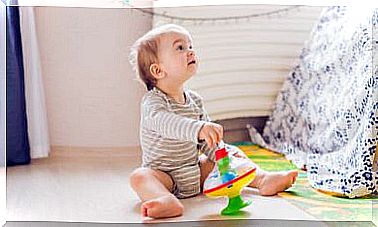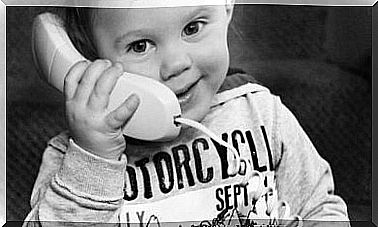Tips For Calming Newborn Colic

Colic in newborns and also stomach problems are often a major concern for parents. It is essential to recognize the symptoms and act accordingly to alleviate the child’s suffering.
During the first three months of life, the baby is often exposed to these gastrointestinal problems. Despite this, the causes of this condition are still not clear to the scientific community.
To help you identify the symptoms of colic in newborns and to give you tips to soothe your discomfort, we’ll provide an overview of colic in newborns below.
What is meant by colic?
Pediatric medicine specialists refer to colic when there is prolonged crying in children under three months of age, for which a specific cause cannot be established.
In principle, it is linked to a possible immaturity of the digestive system that can cause minor stomach pains. Even in another hypothesis, there is talk about food allergies and intolerances.
We could say that the issue of colic is so uncertain that in only 5% of cases researchers were able to claim that there is an organic cause. Despite the uncertainty, these are the likely causes of the malaise:
- Stomach gauze.
- Milk protein intolerances.
- Psychological reasons, such as the transference of anxiety from parents to children, or even the child’s personality.
Visible symptoms of colic in newborns
The gastrointestinal symptoms that are linked to colic are:
- Long episodes of loud crying that usually start late in the day and occur at least three times a week.
- Babies usually assume a peculiar body position : they clench their fists tightly, their face is red, their abdomen is hard, and their legs are bent toward the trunk.

Tips for calming colic in newborns
The following tips aim to alleviate possible cramps that are linked to gastrointestinal problems or intolerances in children. But beware: these can in no way replace the specialist’s diagnosis!
For this reason, we recommend that you consult your child’s doctor about the real reasons for their crying to find out if it is in some other condition.
About breastfeeding
If you breastfeed your baby, it is advisable to avoid foods such as broccoli , cauliflower, Brussels sprouts and cabbage as they are associated with stomach inflammation that causes flatulence. Likewise, reduce the use of condiments and spices.
On the other hand, if you bottle-feed your baby, keep in mind that you should follow your pediatrician’s exact recommendation regarding the amounts of powdered milk and water, which suit the child’s age and needs. It is also recommended that you do not change the brand of milk without first consulting your doctor.
If you want to reinforce these actions, you can search the market for brands that are anti-reflux and combat the so-called aerophagia. As you can see, every resource is valid to ensure the child’s well-being.
Complementary actions
Complementary actions you can take to help fight or alleviate the discomfort of colic in newborns include:
- Always try to get rid of your baby’s gas after he eats. Be sure to burp him the required number of times.
- Gently massage the baby’s abdomen in a clockwise direction. You can use a baby oil. Also, if you rub your hands first to warm them up, it will feel calming and pleasant for your little one.

- Also try giving a hot water bath. This can help your baby feel comfortable. Submerging it in the bathtub, in turn, can produce the effect of showering on the seat. This is believed to reduce colic in children and adults.
- Place the baby in an upright position with the help of a special child seat or by holding him in your arms. This position favors the expulsion of gases and reduces acidity.
Finally, we want to warn about the dangers of using pharmacological products. In addition to not being proven effective for this purpose, it can trigger serious health problems in the child.
Therefore, it is best to always consult your doctor before resorting to any medication.









